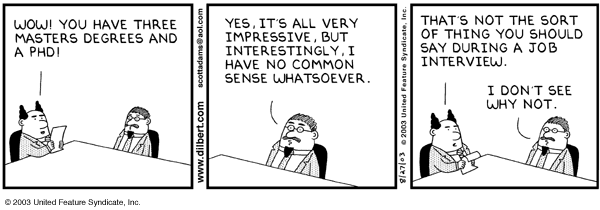
As usual, this advice is aimed at developers, digital infrastructure specialists, and other in-demand technical contributors, but may be applicable to other high-demand careers and industries. YMMV!
When you reach the seniority level (and savings) where job opportunities come to you and you can be picky about your next job, it’s time to step back and evaluate what you actually want out of your next job. Now, preferably, you’ve already done this before earlier in your career, but even if you have (or haven’t), this is the point in a career to do it again, especially now that as an experienced worker in a high-demand industry, you have choice and you interview from a position of power — it is very likely for all but the largest companies, you are needed more than you need them — especially if you have the savings to be picky.
So before opening up LinkedIn or checking your recruiter mail folder, open up a document or get out your notebook and pen, and answer these five questions:
What situations have I found myself the most successful and happiest in?
What is the minimum amount of compensation I need to take my dream job?
What are my core strengths? Professional and personal apply.
What are my weaknesses?
What do I want to learn next?
What situations have I found myself the most successful and happiest in?
Success is highly situational! The best employee in the world will fail if not given the proper support and positive motivation. When considering your next role, consider what has made you successful:
Management?
Excitement about the product or company mission?
Excitement about the technology used?
Coworkers that you can stand, and vice versa?
As an autistic adult, my number one is definitely my direct manager. In cases where they’ve gone the extra mile to limit exposure to my weaknesses and expose my strengths as often as possible, I’ve excelled, earned bonuses and company awards, and enjoyed going to work every day.
In cases where the direct manager has not been willing to work with me or has a fundamental misunderstanding of what autism does to communication for folk like me, I’ve been forced out, resigned in anger, been straight up fired for not meeting the company standard, and fell into major depressions.
Not only does answering this question for yourself help guide you on the path of where to interview, it also answers a question you’re going to get asked by every recruiter or hiring manager you speak with, and that is: What are you looking for in your next career move?
What is the minimum amount of compensation I need to take my dream job?
For many, taking a dream job may mean taking a pay cut. For someone like me who has interest in the social activism and video game verticals, those tend to pay below market Games because every young programmer wants in, and social activism due to being a non-profit or it being difficult to monetize changing the world. In addition to deciding the amount of compensation you want to make in your next role, consider how much you’re willing to give up to do what you really want. If such a pay cut is fiscally viable and falls into the comp bands of your dream job, TAKE IT.
What are my core strengths?
There are tests like Gallup’s strengths finder that can give you your strong personality traits and the like, but for this, let’s focus on professional strengths — the sort of tasks that could be described as being in your wheelhouse. These are your moneymakers — this is your coding ability, your infra chops, your product/project management/cat-herding skills. Drill down on these as much as possible, and look for positions that are going to have a lot of work that hits these strengths.
What are my core weaknesses?
Is your communication not strong? Do you need someone to help organize and prioritize your work? Are you a high-empathy person that has trouble saying no when asked for help at the detriment to your own projects?
These are all relative weaknesses in the first place, even if things like high empathy are considered strengths for most employees. Kindness is cool, but remember, you have more ability to be kind when your own ducks are in a row. Be honest — as even strengths can come with weaknesses. A highly analytical mind doesn’t always make for a good listener since they’re problem solvers.
Using another personal example, autism affects my interpersonal communication skills. They tend to fall apart in situations I haven’t actively practiced on, or I get too deep into the theory of conversation and end up sounding like a robot trying to pass a captcha! Therefore, as I’m looking for my next position, I’m looking for a spot where when communication is needed, the times I have to communicate are in my practiced wheelhouses: technical design and leadership, software and systems architecture, and so on, and that I heave team and management support to cover me where my communication is weaker, like interpersonal banter or on days where I am sensory overloaded and my brain-to-mouth filter is non-existent.
What do I want to learn next?
If you are still looking for new challenges in your career, decide what you want to learn next, and seek out employers that are leaders in using a new technology, a new process, or an industry standard you want to get better acquainted with. As I’ve said before, interviewing is a great way to get intelligence on your field and to see which new technologies are rising within companies.
By answering these questions about yourself, you are more aware of your own wants and needs in your next position, and can narrow your focus down to positions that use your strengths, minimize your weakness, meet your compensation and professional education goals, and provide an optimal work situation for success.

